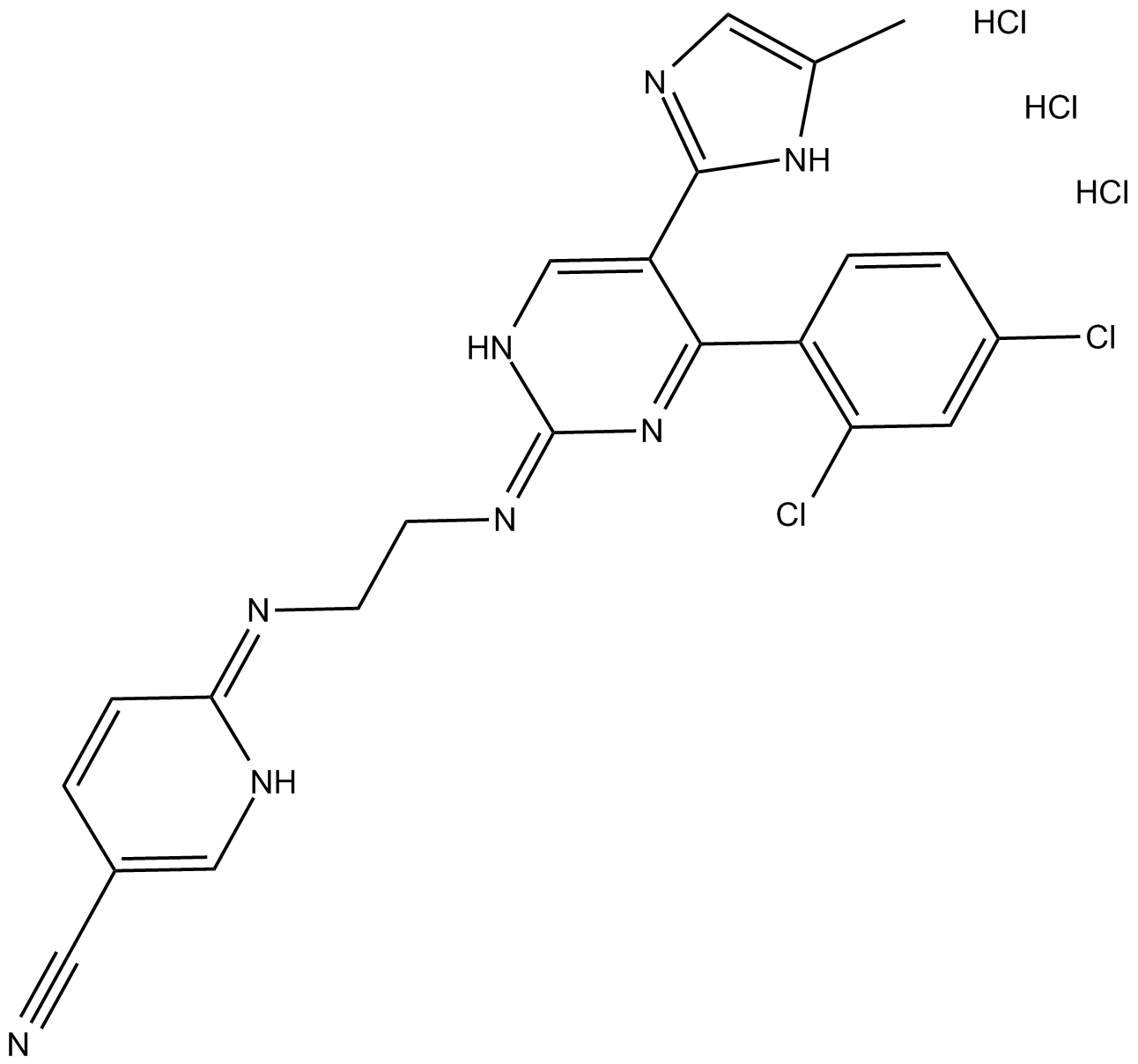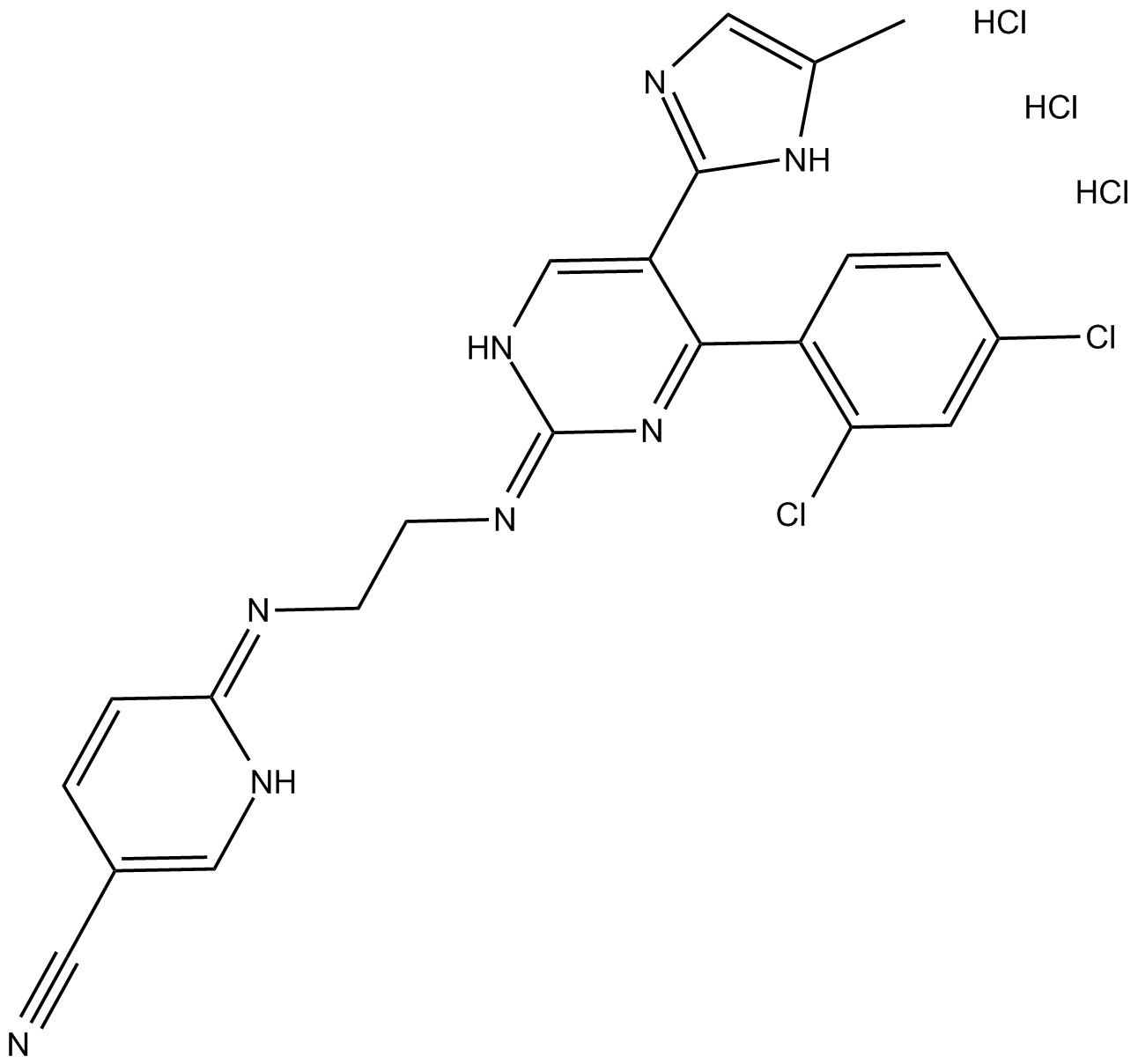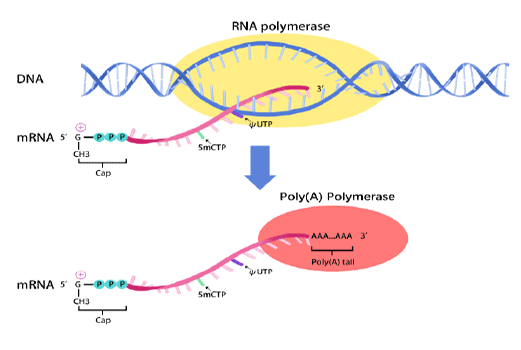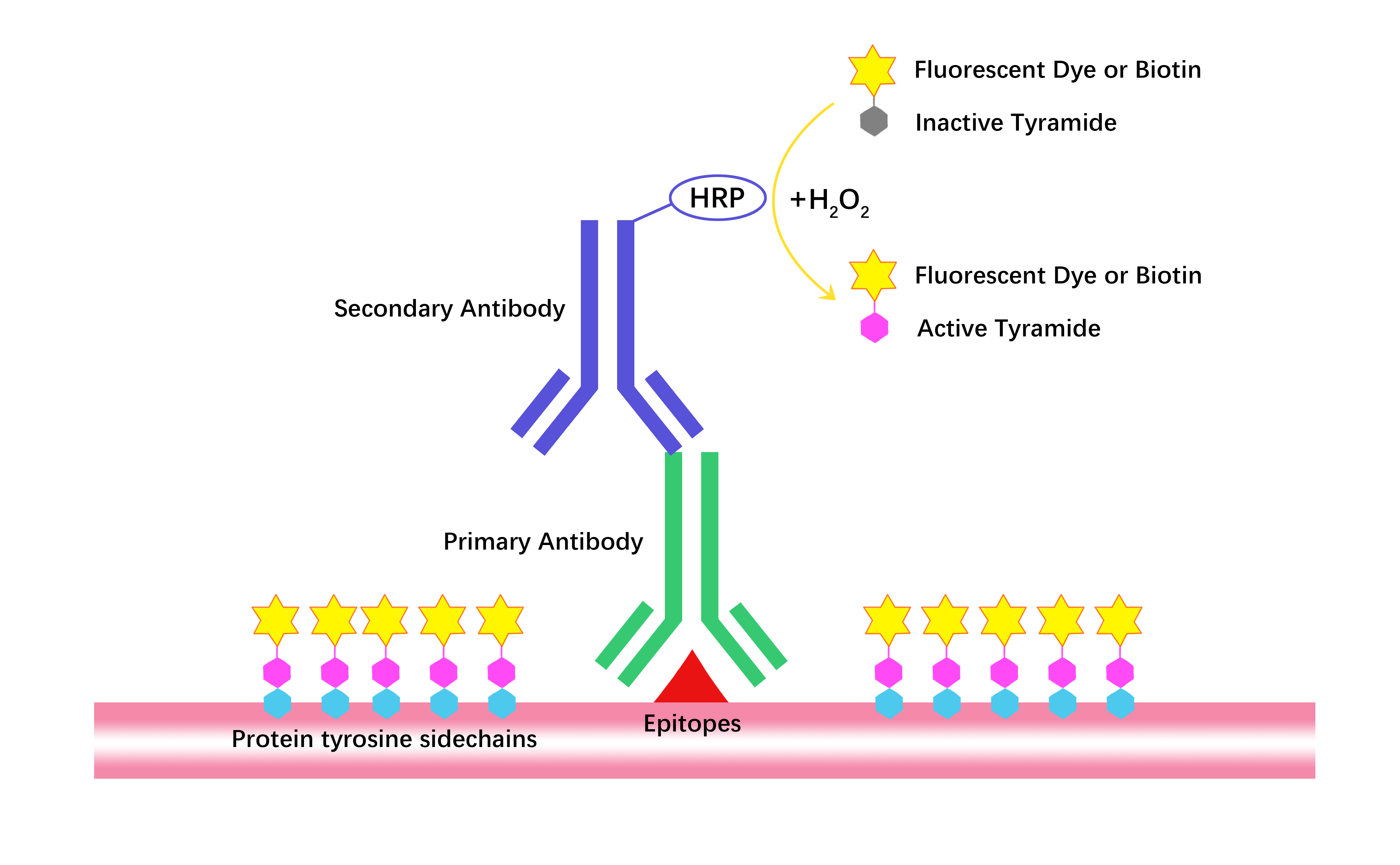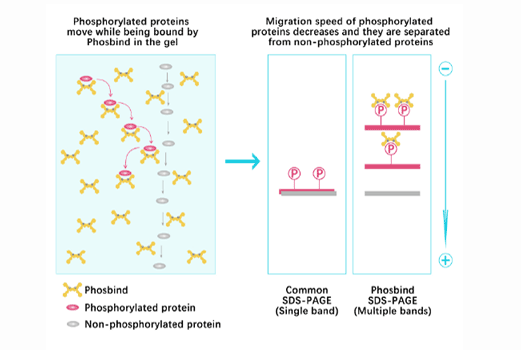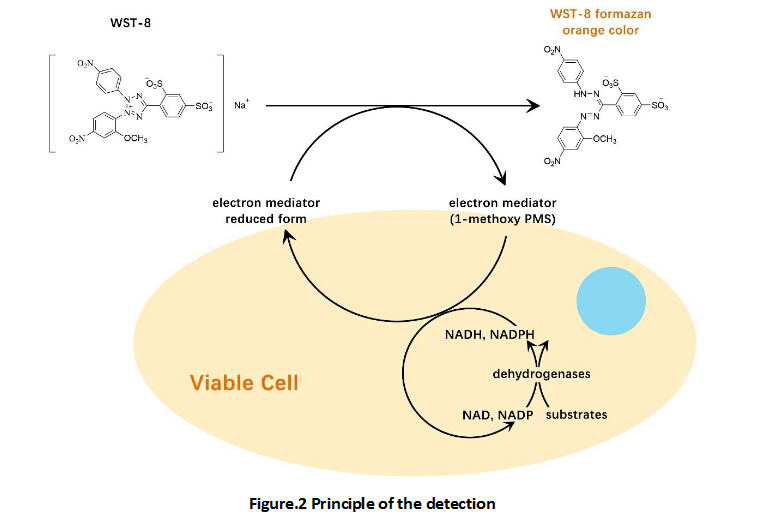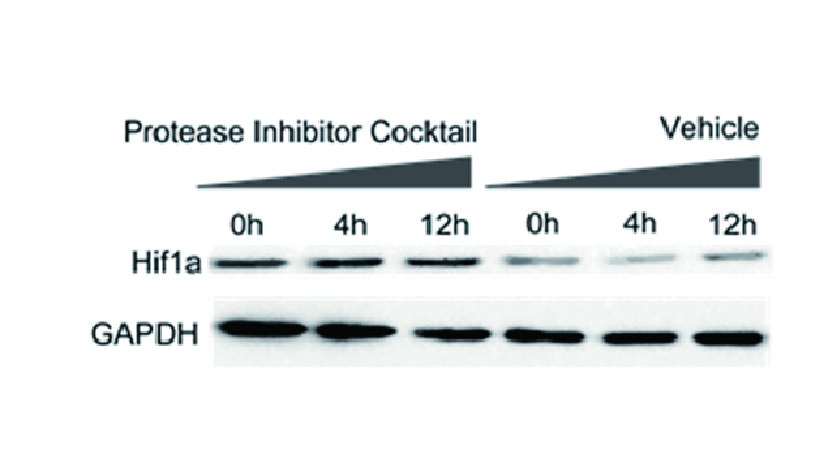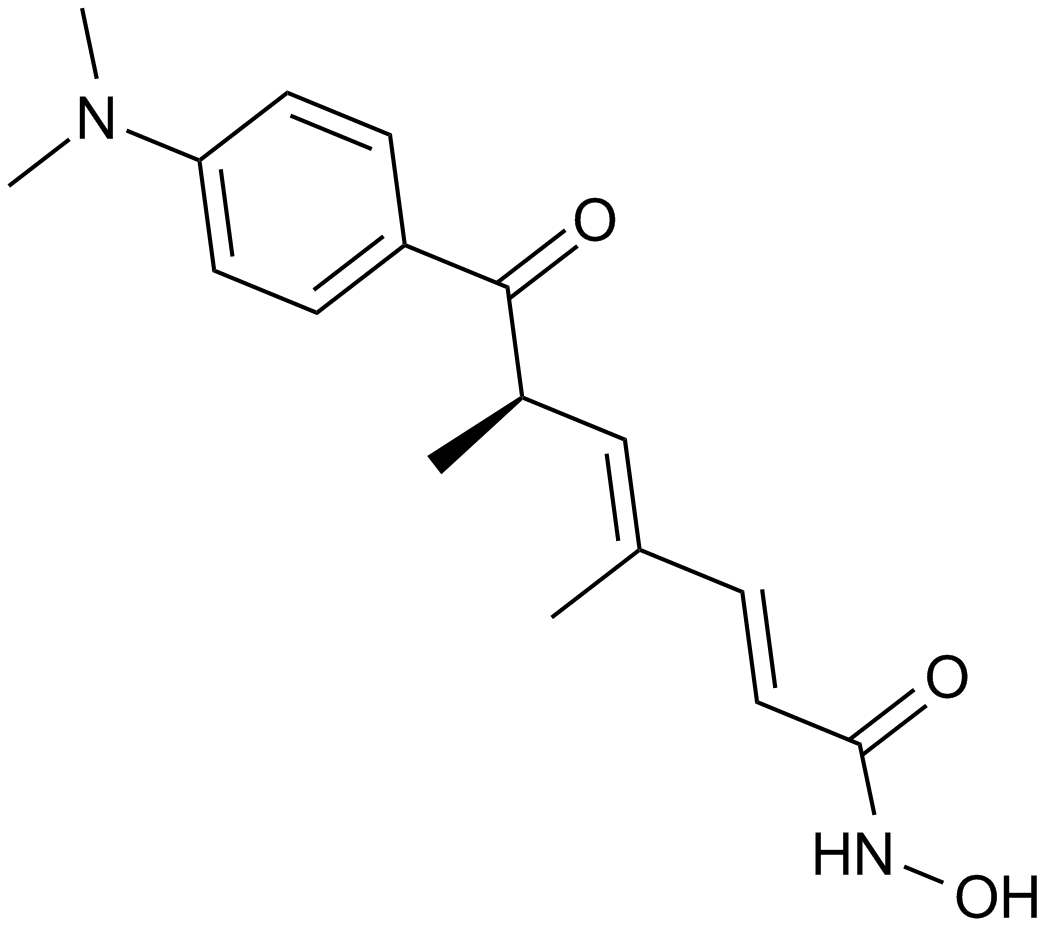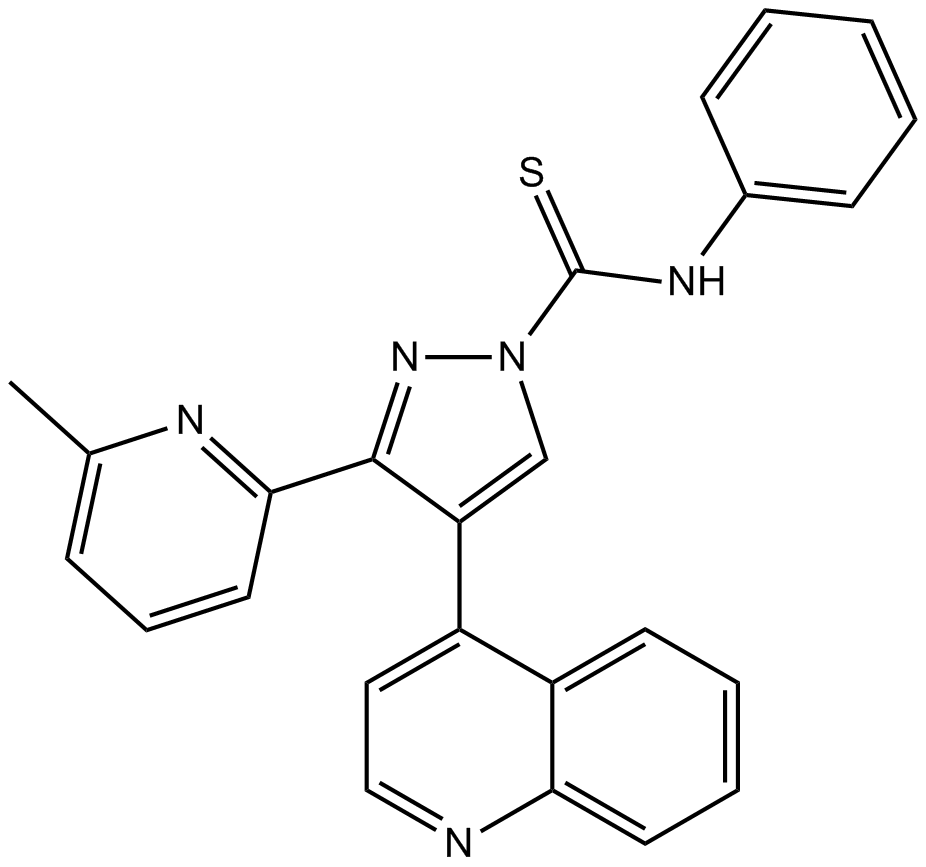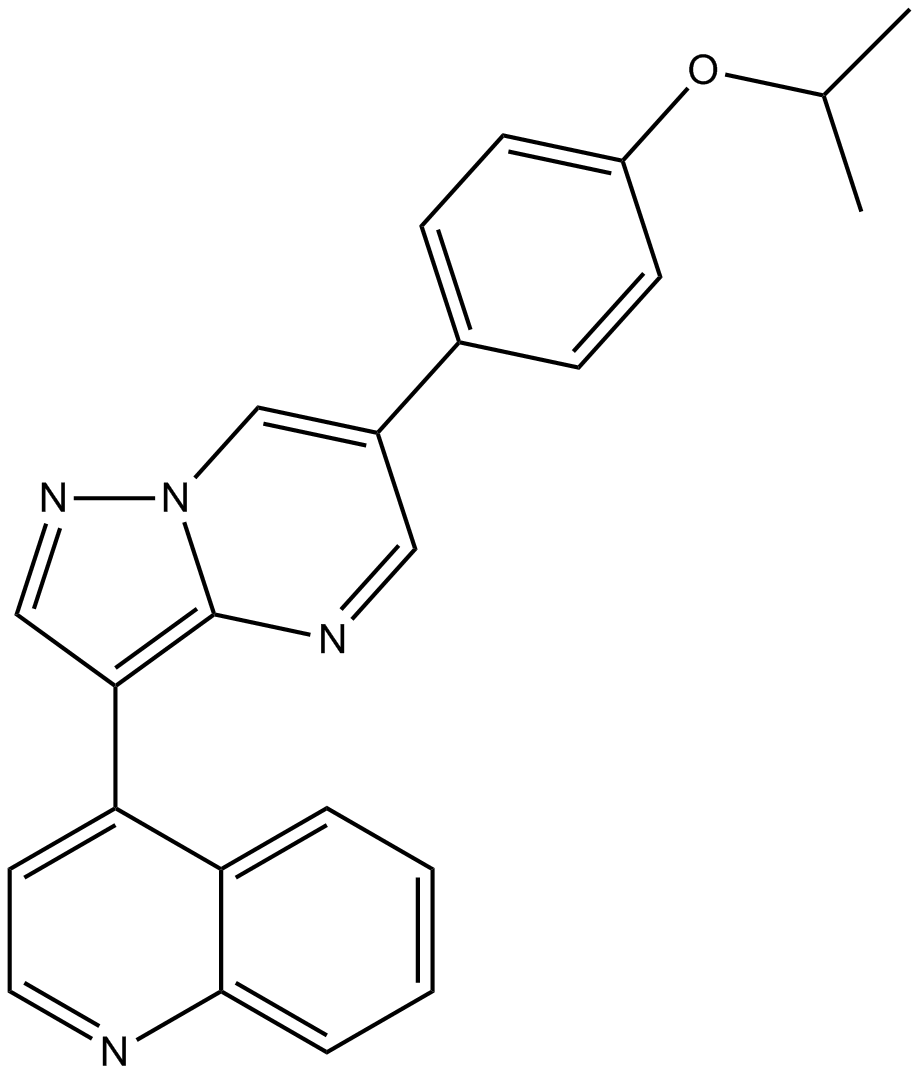CHIR 99021 trihydrochloride
CHIR 99021 trihydrochloride (CAS 1782235-14-6) is the hydrochloride salt form of CHIR 99021, a potent inhibitor of glycogen synthase kinase-3 (GSK-3). This inhibitor selectively targets both isoforms, GSK-3α and GSK-3β, with IC50 values of 10 nM and 6.7 nM, respectively. As serine/threonine kinases, GSK-3 enzymes phosphorylate specific serine or threonine residues influencing gene expression, protein translation, apoptosis, proliferation, metabolism, and cellular signaling. CHIR 99021 trihydrochloride is commonly employed in biomedical studies exploring pathways involved in insulin signaling, stem cell maintenance, cellular differentiation, and glucose metabolism.
- 1. Elisa Barbieri, Ian Chambers, et al. "OTX2 controls chromatin accessibility to direct somatic versus germline differentiation." bioRxiv. February 18, 2025.
- 2. Li Yang, Xulei Wang, et al. "A tunable human intestinal organoid system achieves controlled balance between self-renewal and differentiation." Nat Commun. 2025 Jan 2;16(1):315. PMID: 39747097
| Physical Appearance | Off White solid |
| Storage | Store at -20°C |
| M.Wt | 574.72 |
| Cas No. | 1782235-14-6 |
| Formula | C22H18Cl2N8·3HCl |
| Solubility | insoluble in EtOH; ≥21.87 mg/mL in DMSO; ≥32.45 mg/mL in H2O |
| Chemical Name | (Z)-6-((2-((E)-(4-(2,4-dichlorophenyl)-5-(5-methyl-1H-imidazol-2-yl)pyrimidin-2(1H)-ylidene)amino)ethyl)imino)-1,6-dihydropyridine-3-carbonitrile trihydrochloride |
| SDF | Download SDF |
| Canonical SMILES | CC(N1)=CN=C1C(C(C2=C(Cl)C=C(Cl)C=C2)=N/3)=CNC3=N/CC/N=C4C=CC(C#N)=CN/4.Cl.Cl.Cl |
| Shipping Condition | Small Molecules with Blue Ice, Modified Nucleotides with Dry Ice. |
| General tips | We do not recommend long-term storage for the solution, please use it up soon. |
| Cell experiment:[3] | |
|
Cell lines |
INS-1E cells |
|
Reaction Conditions |
0 ~ 20 μM CHIR 99021 for 24 h incubation |
|
Applications |
CHIR 99021 increased the rate of proliferation of INS-1E cells in a dose-dependent manner, with the rate of proliferation reaching a maximum in the presence of 2.5 ~ 10 μM CHIR 99021. Moreover, CHIR 99021 also dose-dependently counteracted INS-1E cell death induced by high glucose and high palmitate. |
| Animal experiment:[1] | |
|
Animal models |
Male ZDF rats with type 2 diabetes |
|
Dosage form |
16, 30 or 48 mg/kg Orally |
|
Applications |
In ZDF rats with type 2 diabetes, a single oral dose of CHIR 99021 at 30 mg/kg rapidly lowered plasma glucose, with a maximal reduction of nearly 150 mg/dl 3 ~ 4 hours after administration, while plasma insulin remained at or below control levels. Moreover, oral administration of CHIR 99021 at 16 or 48 mg/kg 1 hour before oral glucose challenges in ZDF rats substantially improved glucose tolerance, with 14% and 33% reduction in plasma glucose. |
|
Note |
The technical data provided above is for reference only. |
|
References: 1. Ring DB, Johnson KW, Henriksen EJ, et al. Selective glycogen synthase kinase 3 inhibitors potentiate insulin activation of glucose transport and utilization in vitro and in vivo. Diabetes, 2003, 52(3): 588-595. 2. Pandey MK, DeGrado TR. Glycogen synthase kinase-3 (GSK-3)-targeted therapy and imaging. Theranostics, 2016, 6(4): 571-593. 3. Mussmann R, Geese M, Harder F, et al. Inhibition of GSK3 promotes replication and survival of pancreatic beta cells. Journal of Biological Chemistry, 2007, 282(16): 12030-12037. |
|
Quality Control & MSDS
- View current batch:
Chemical structure
